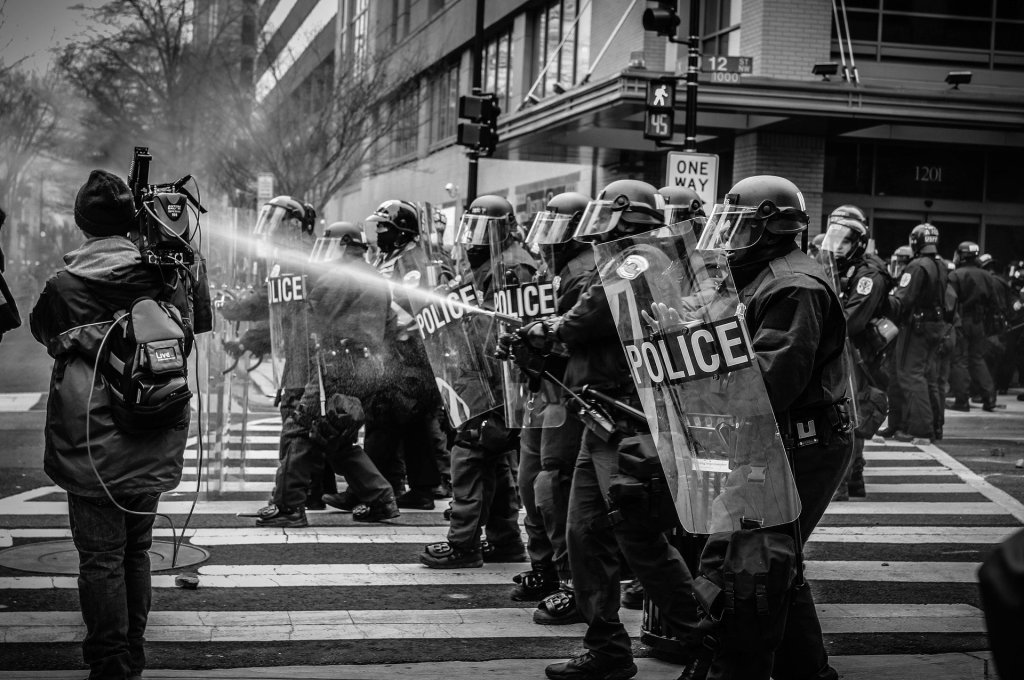Resources for journalists covering protests

Note: This post was updated with additional resources on June 16, 2020.
With civil unrest occurring across the country, the Free Expression Legal Network is sharing a few resources for journalists — or for those FELN members who may be assisting journalists right now.
The U.S. Press Freedom Tracker is investigating reports of more than 250 press freedom incidents, as of June 4, as reporters across the country have covered protests in response to a white Minneapolis police officer killing George Floyd, a Black man, on May 25.
Some resources to help journalists cover and stay safe at protests:
- The Reporters Committee for Freedom of the Press’s Police, Protesters and the Press legal guide and accompanying safety tip sheet
- The Reporters Committee’s recent letter to Minneapolis officials and letter to New York officials also more fully spell out the potential grounds for lawsuits against officials for constitutional violations against journalists at protests
- The Committee to Protect Journalists’ safety advisory and Safety Kit
- The National Press Photographers Association’s practical advice about covering high conflict news stories
- North Carolina law firm Stevens Martin Vaughn & Tadych’s What to Pack for a Protest
- UGA First Amendment Clinic’s Know Your Rights: Tips for Journalists Covering Protests
- The U.S. Press Freedom Tracker, along with the Reporters Committee and other press freedom organizations, are tracking press freedom incidents across the country
- The Reporters Committee is also tracking curfew orders, and whether they exempt the news media
- This special analysis looks at when curfew orders may violate the First Amendment
- The Reporters Committee’s Reporter’s Privilege Compendium details protections for journalists’ sources and work, and here is some information about what to do if a reporter receives a request from police for this information
- Additionally, the Reporters Committee’s police body cam map (listing laws and policies related to the release of body cam footage) and Open Government Guide (including information on accessing police records under each state’s open records laws) may be helpful tools for reporting
Reporters Committee attorneys are also monitoring its legal hotline for journalists, in case reporters have questions about their legal rights at protests, or need help finding an attorney. There are three ways to reach the hotline: (1) online at rcfp.org/hotline, (2) by phone at 800-336-4243, or (3) by email at hotline -at- rcfp.org. The Student Press Law Center also has a hotline for student journalists.